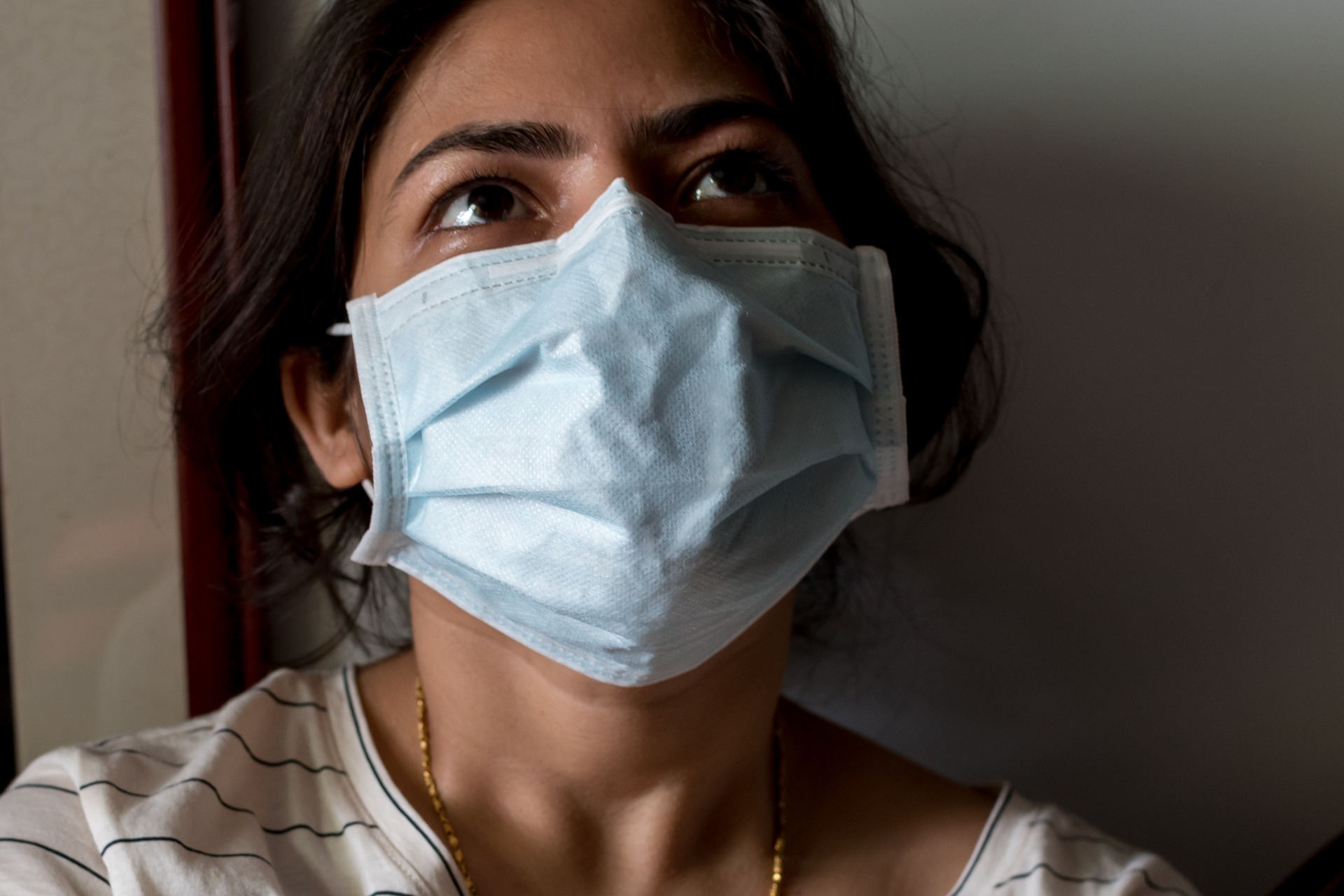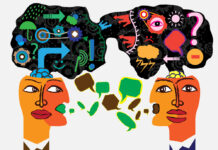A multidisciplinary team of researchers recently conducted three listening sessions over Zoom to gather information, views, and personal accounts of people’s experiences with the COVID-19 pandemic. The participants had faced a variety of mental health challenges and disabilities and were from various racial and ethnic backgrounds.
The authors sought to use the listening sessions to challenge traditional notions of normalcy and suggest that systems of care should seek to implement frameworks that focus on addressing health inequities and human rights.
“Coping with uncertainty is challenging and is often dealt with in two ways; responding with a sense of urgency to ‘get back to normal’ at whatever cost or tolerating some not-knowing with hope that something better can emerge,” wrote the authors, led by Ana Florence of Yale University.
“Reinventing reality is something that many of us have done before, whether through an extreme experience, physical illness, a mental health crisis, a memorable trip, a book we read, relationships that forever changed how we see ourselves, love, parenthood, loss, friendship, grief or hardship. While Covid-19 is not the great equalizer – because lives appear to be being separated into expendable and not expendable – it is our responsibility to make sure that the new reality from the crucible of Covid-19 brings new equity. We hope that this effort offers some language to start generating meaning to this collective experience.”
 Formally characterized as a pandemic by the World Health Organization on March 11, 2020, COVID-19 quickly spread across the globe and significantly impacted most realms of life. Florence and colleagues wondered what guidance people who have faced mental health challenges could offer to the world at large, given their lived experience of recovery.
Formally characterized as a pandemic by the World Health Organization on March 11, 2020, COVID-19 quickly spread across the globe and significantly impacted most realms of life. Florence and colleagues wondered what guidance people who have faced mental health challenges could offer to the world at large, given their lived experience of recovery.
Despite some progress in the field of psychiatry (most notably the civil rights movement of ex-patients, the accordant re-thinking of traditional psychiatry, and the shift towards the rehabilitation or disability model of psychiatry), the voices of those with lived experience have often been silenced at the expense of academics and professionals.
The authors of this piece contend that those who have lived experience are, in fact, “experts” of their own experience, and can provide unique insight. Accordingly, the authors aimed to capitalize on the “golden opportunity” that COVID presents for us to re-value lived experience knowledge through a series of virtual listening sessions.
The authors conducted three listening sessions, gathering information, views, and personal accounts from 24 people with lived experience of mental health challenges and recovery. The group was composed of 10 White women, 6 African American/Black women, 4 White men, 3 Latino women, and 1 Chinese woman. They were academic researchers, social workers, clinical psychologists, and peer workers.
The group articulated the “recovery framework” as an effective way to address future concerns. A key element of this framework is that to recover is to forge new pathways and live life within and beyond the constraints that the world puts upon us, instead of seeking to return to “normalcy.”
The group saw potential to apply this framework to public health crises as it can provide a means to conceptualize the collective journey from uncertainty into a future that will perhaps forever be impacted by this monumental event.
The group also challenged traditional notions of normalcy, posing the question: “If psychosis describes when someone is seen to break from reality, what should we call the occasion when reality breaks from all of our understanding?”
Many of the group had experienced isolation, hospitalization, and a loss of connection to those around them as a result of their mental health crisis. Relying on their lived experience, they suggested that we focus on understanding and empathy rather than romanticizing these often violent and traumatic experiences.
The implication of this for providers and care systems is to consider whether isolating and traumatic experiences (in this case, COVID) are going to be conceptualized as pathological and requiring treatment, or whether it will force us to focus on what needs changing at a societal level.
“If we choose to look at individuals and their personal responses to this crisis, we will find ourselves in an unprecedented situation in which almost every person on the planet may be in need of treatment,” write the authors. “However, if we understand the psychological responses as part of a collective experience of suffering, and understandable response to an awful situation, we may be able to find equally collective solutions.”
The group stressed that our societal response must acknowledge that there is no shame in experiencing distress; instead, we should learn to recognize, honor, and move through these feelings, being careful to include the various social elements that determine individual emotional responses.
Further, they worried about the emergent narrative, that COVID will lead to an epidemic of mental illness, which may distract from the collective action mentioned above. Instead of shifting our focus to providing services that will ease psychological distress, health systems must reorganize to afford citizens better and broader access to government aid and community resources.
To conclude, the authors stress that we must fight the urge to return to normal at whatever cost. Instead, we must live with some uncertainty, an uncertainty with which many of us have had to live, to engage in re-imagining with the hope that a better world can emerge. It is now something of our responsibility to ensure that COVID brings about more equitable practices in healthcare and beyond.
“We hope that this effort offers some language to start generating meaning to this collective experience,” conclude the authors. “There is a radical need for a world where ‘us and them,’ ‘center and margin,’ and ‘normal and crazy’ are no longer needed.”
****
Ana Carolina Florence, Rebecca Miller, Chyrell Bellamy, Pauline Bernard, Claire Bien, Kendall Atterbury, Cheri Bragg, Annette Diaz, Eve Gardien, Kimberly Guy, Chris Hansen, Kirsten Maclean, Barbara Milton, Leslie Nelson, Jonathan Jj Samoskevich, Shannon Smith, Milena Stanojlovic, Thomas Wexler, Rafaela Zorzanelli & Larry Davidson (2020). When reality breaks from us: lived experience wisdom in the Covid-19 era. Psychosis. DOI: 10.1080/17522439.2020.1817138 (Link)















“We hope that this effort offers some language to start generating meaning to this collective experience,” conclude the authors. “There is a radical need for a world where ‘us and them,’ ‘center and margin,’ and ‘normal and crazy’ are no longer needed.”
Please, which “lived experience”? The “mental illness” ones? Let’s not pretend that psychiatry uses such terms and indeed they stay away from them and indeed refer to them as “mental health problems” or “illnesses”.
As psychiatry likes to say, “there is no normal”, and as psychiatry likes to say, “you’re not crazy, you have a mental illness”. So they have a lot in common with the reformists.
Report comment
“There is a radical need for a world where ‘us and them,’ ‘center and margin,’ and ‘normal and crazy’ are no longer needed.”
Perhaps this best describes the path my wife and I have taken. I see her fundamentally as no different than myself. I believe our refusal to embrace the dichotomy between ‘survivors’ and ‘the rest of us’ is why my wife and I sidestepped so many of the issues that have engulfed all parties within the mental health industry/world and most attempts to reform it.
Sam
Report comment
Is a “Zoom” conference the norm? If one attempts to access a “Zoom” meeting that is filled up, then where does the mind of the “zoomed in crowd” and the others, who remain invisible communicate a voice, to be a a study, that by definition, studied a zoomed in conference? I do no think the virus, is sophisticated enough to choose one or the other; though trying to access health across barriers seemingly has become more difficult.
Report comment
I see so many people who are so concerned about “mental illness” that they discount the fact that things really suck right now and that it’s completely normal and completely human to feel like shit when things suck. There’s no problem with feelings of grief or anxiety or depression in this particular moment because those are the *appropriate* responses.
You can’t keep up the facade of “happiness” and positivity all the time. It’s hard to be positive when so many terrible things are going on all around the world.
What we should be doing is helping each other work to process these strong emotions and share in a collective experience. A lot of people have lost their jobs. A lot of people have lost a loved one (or multiple loved ones). A lot of people are struggling to make ends meet. A lot of people are struggling with online classes.
Our entire world has shifted and things will *never* go back to the exact same way that it was before the pandemic. But people need safe spaces to express what they’re feeling, not drugged compliance. That’s only numbing the trauma or putting it on pause and it’s going to come back to bite you in the back at some point.
Report comment
Your title is good, but forgive me, Gavin. Reading your articles regularly lead me to think you’re a young kid who doesn’t yet see the big picture, and your goals are misguided.
“it is our responsibility to make sure that the new reality from the crucible of Covid-19 brings new equity.” I do agree, a return of a more equitable society is needed, but psychology and psychiatry have been all about doing the opposite of that for decades. However, I find it interesting that Covid-19 is aptly being described as “the crucible.”
https://en.wikipedia.org/wiki/The_Crucible
Especially now that the DSM disorders, which I’m quite certain have been “the crucible,” “quiet” replacement for the witch hunters of old for the paternalistic religions, for decades, have now been debunked as “invalid.”
https://www.nimh.nih.gov/about/directors/thomas-insel/blog/2013/transforming-diagnosis.shtml
But I do agree, we do need a return to medical services that promote “human rights.” Which, of course, would require the taking away the right of all scientifically “invalid” psychiatrists to force treat with any medical “treatment” they please, any person they please, for any reason; like profiteering off of covering up child abuse. Which is the number one actual societal function of both the psychiatric and psychological profeesions today, and historically.
https://www.indybay.org/newsitems/2019/01/23/18820633.php?fbclid=IwAR2-cgZPcEvbz7yFqMuUwneIuaqGleGiOzackY4N2sPeVXolwmEga5iKxdo
https://www.madinamerica.com/2016/04/heal-for-life/
I do agree, “those who have lived experience are, in fact, ‘experts’ of their own experience, and can provide unique insight.” Yet the mental health industry has defamed, denied, ignored, and dismissed our concerns for decades.
And some of us have found the medical evidence the psychiatric drugs create the common symptoms of the two most serious, so called DSM “mental health illnesses.” Meaning the two “most serious mental illnesses,” which are not medically proven illnesses, are most likely almost always iatrogenic illnesses, created with the psych drugs. Not “genetic” illnesses, as the “mental health” workers fraudulently believe.
https://www.alternet.org/2010/04/are_prozac_and_other_psychiatric_drugs_causing_the_astonishing_rise_of_mental_illness_in_america/
https://en.wikipedia.org/wiki/Toxidrome
https://en.wikipedia.org/wiki/Neuroleptic-induced_deficit_syndrome
I’m not certain why you’re so adamantly preventing a call to a “return to ‘normalcy.’” Given the know fraud of the pharmaceutical and medical industries, Gavin.
“if psychosis describes when someone is seen to break from reality, what should we call the occasion when reality breaks from all of our understanding?” I’m quite certain we’re now dealing with a medical/pharmaceutical industrial complex run amok – who have egregious, primarily systemic child abuse covering up profiteering sins, that they desperately want to cover up. So they’re panicking. Thus, Covid-19, rather than the debunked “schizophrenia,” is now our society’s “mystery” “illness” for all political dissidents. Read into the history of “schizophrenia.”
“However, if we understand the psychological responses as part of a collective experience of suffering, and understandable response to an awful situation, we may be able to find equally collective solutions.”
That should have been what the “mental health” industries were doing in the first place. For God’s sakes, our “mental health” system has believed, since 9/11/2001, that all distress caused by 9/11/2001, was a “chemical imbalance” in one person’s brain, since 9/11/2001, according to my medical records.
“Further, they worried about the emergent narrative, that COVID will lead to an epidemic of mental illness, which may distract from the collective action mentioned above.”
I’m pretty certain that’s the hope of most of the so the called, profit motivated only, “mental health” industry.
“Instead of shifting our focus to providing services that will ease psychological distress, health systems must reorganize to afford citizens better and broader access to government aid and community resources.”
Once again, you’re not calling for a return to normal, solution oriented, rational solutions; you’re calling for more “mental health care” financing, Gavin. That’s not the solution.
“the authors stress that we must fight the urge to return to normal at whatever cost.” I disagree with the criminal “mental health” system, whose crimes are being exposed all over the internet, thus they do not want a return to a Constitution led American government. That’s what is actually needed.
I believe those scientific fraud based, pharmaceutically deluded, “mental health” industries, who seemingly took over our government, and are systemic child abuse cover uppers, according to their own medical research, need to be taken down.
“Instead, we must live with some uncertainty, an uncertainty with which many of us have had to live, to engage in re-imagining with the hope that a better world can emerge.”
Of course, most of us all always live with uncertainty. And I do believe we should all hope and pray that a better world can emerge. But that does not mean putting the pharmaceutically deluded “mental health” system back in charge of America. We do need to get those systemic child abuse profiteers, out of charge, not further fund them.
“There is a radical need for a world where ‘us and them,’ ‘center and margin,’ and ‘normal and crazy’ are no longer needed.”
Exactly why we need to defund the DSM “bible,” the believers in such, and why those “mental health” workers, who believe in the “‘us and them,’ ‘center and margin,’ and ‘normal and crazy’ are no longer needed.”
I guess, in general, I believe you’re speaking complete hypocrisy most the time, Gavin. When you’re trying to increase funding for the DSM deluded “mental health” industry, who are actually our society’s problem.
When the DSM deluded are actually the people who need to be defunded and re-educated. Their “bible” was debunked seven years ago, by the head of their industry. And their primary function in our society is covering up child abuse for the paternalistic religions and their wealthy pedophiles, which is an illegal activity. I hope and pray you wake up, Gavin.
Report comment